
CONTACT US
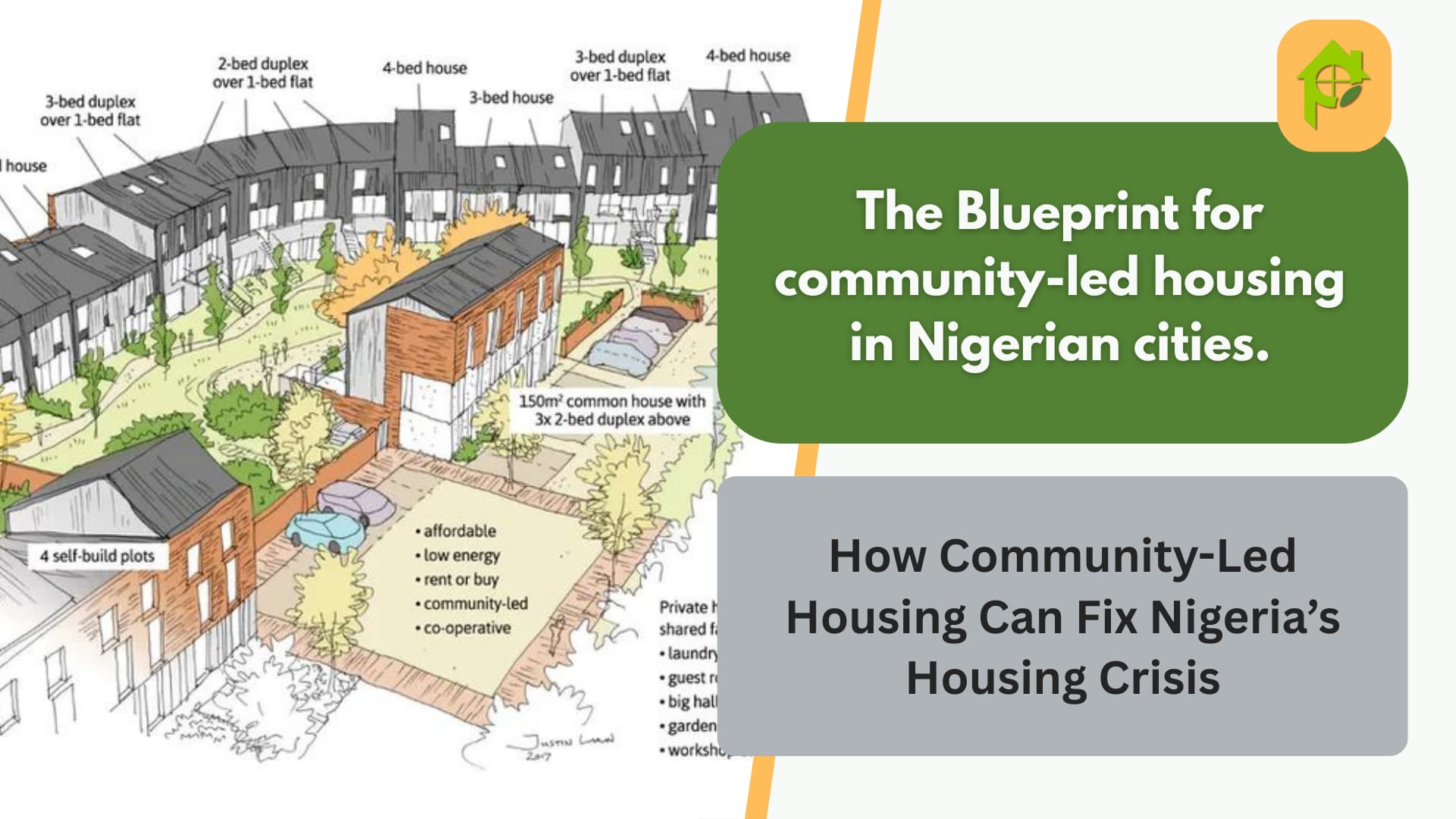
SNEAK PEEK
For most Nigerians, homeownership feels like a finish line that keeps moving further away. If you earn ₦400k–₦1M per month, you already know the story. Land is expensive, building costs are overwhelming, and dropping ₦50–100m in one go for a home? Almost impossible.
But what if the goal wasn’t to buy everything at once? What if more people can own homes simply by doing it together?
Does this mean that multiple families will share one home? Definitely not.
It just means that homeownership is simplified into small parts that are easily achievable by starting small—within everyone's budget today—and they all grow together, achieving a shared goal of creating and developing their community, neighbourhood and influencing the future they want togetjer… over time.
That’s the promise of community-powered housing. Helping more people own dignifying homes by building homes, communities and neighbourhoods together.
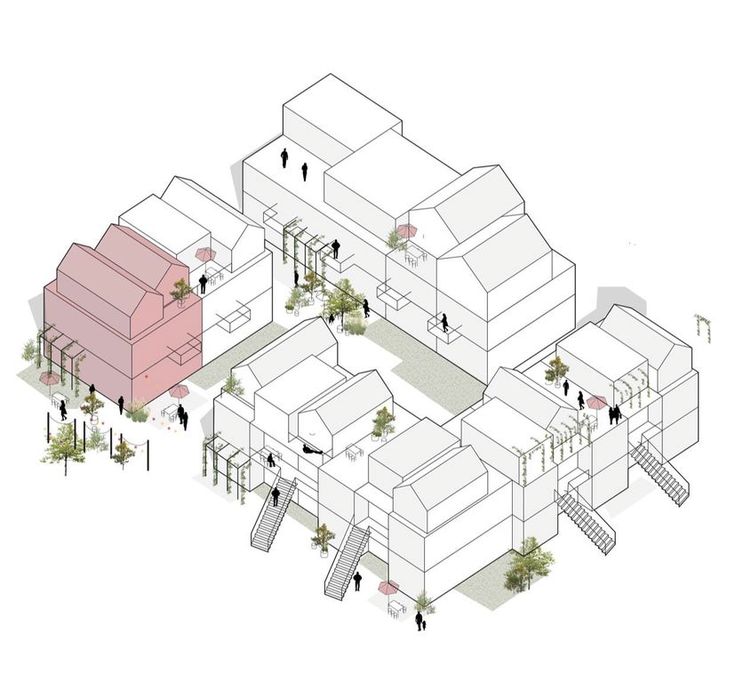
Most Nigerians want the ‘Nigeria Dream’: To live in a large mansion with a large compound and drive many cars.
And our approach to city planning still reflects this. While income gets drowned by inflation, our cities and the real estate market is still built on the one-family per plot ownership model.
Meanwhile, recent discoveries by research and conversations with clients made something clear: most people don’t actually need an entire plot. They do not even care as much about size, all they care about is comfort (within their means) as long as they hold full ownership rights.
That is why at a time like this, when the disparity between cost of housing and income is intimidating, it is important to create ways to ensure that the average (low/middle-income earners) residents are not permanently excluded from housing rights and homeownership privileges.
That’s where fractional ownership (like PetitHaus’ Land-Pool model) comes in. Where we leverage friendship, relationships, and community to enable affordable homeownership.
While the cost of land in the cities remains high, community-led housing leverages relationships to reduce the burden on individuals by spreading the costs of ownership between multiple (joint) owners.
It creates equal opportunity for more people to own homes by coming together to jointly (co)own a piece (plot) of land, split the cost of acquisition, title documentations, building plans and even city planning approvals (with building permit) evenly.
And the best part is each (part)owner retains full ownership rights on their part of the (plot of) land, individually creating homes, neighborhoods and communities together.
In its simplest form:
This isn’t a compromise.
It’s empowerment; turning land into something accessible for everyday Nigerians, not just the privileged few.
Even when land is sorted, the big question remains: how do you build without going broke? This is where incrementality comes in. It’s the practice of building in phases:
Nigerians already practice this informally—starting with a one-room or a “face-me-I-face-you” structure and expanding later. But the difference lies in making it legal, planned, and dignified.
This model is also applied communally in creating and developing shared facilities and infrastructures (especially where government has failed to perform its duties) in gradual community-focused increments that improve the lifestyle and well-being of the residents.
These are simple, yet highly rewarding solutions building truly affordable homes and sustainable communities organically. And we should all pay attention, now more than ever, when the difference in class (political, social and economic) keeps widening.
This isn’t just theory. Around the world, and in Nigeria, research and practice show how shared and incremental models work:
Shared equity homeownership and community land trusts let people buy in gradually, while still building equity over time.
PetitHaus | Taiwo Ayomide | SMina Udom and co
Community-driven housing through cooperatives or participatory design creates stronger social cohesion while ensuring homes meet real needs.
PetitHaus | Daily Trust | Wikipedia
Innovative financing and design models like rent-to-own, micro-mortgages, prefab tech, sustainable materials are lowering entry barriers.
The Nation | Acash | Empowa
These are many solutions that, applied individually and/or together, have proven that affordable housing doesn’t have to mean “smaller and cheaper.”
But rather budget-smart, community-led, and future-ready
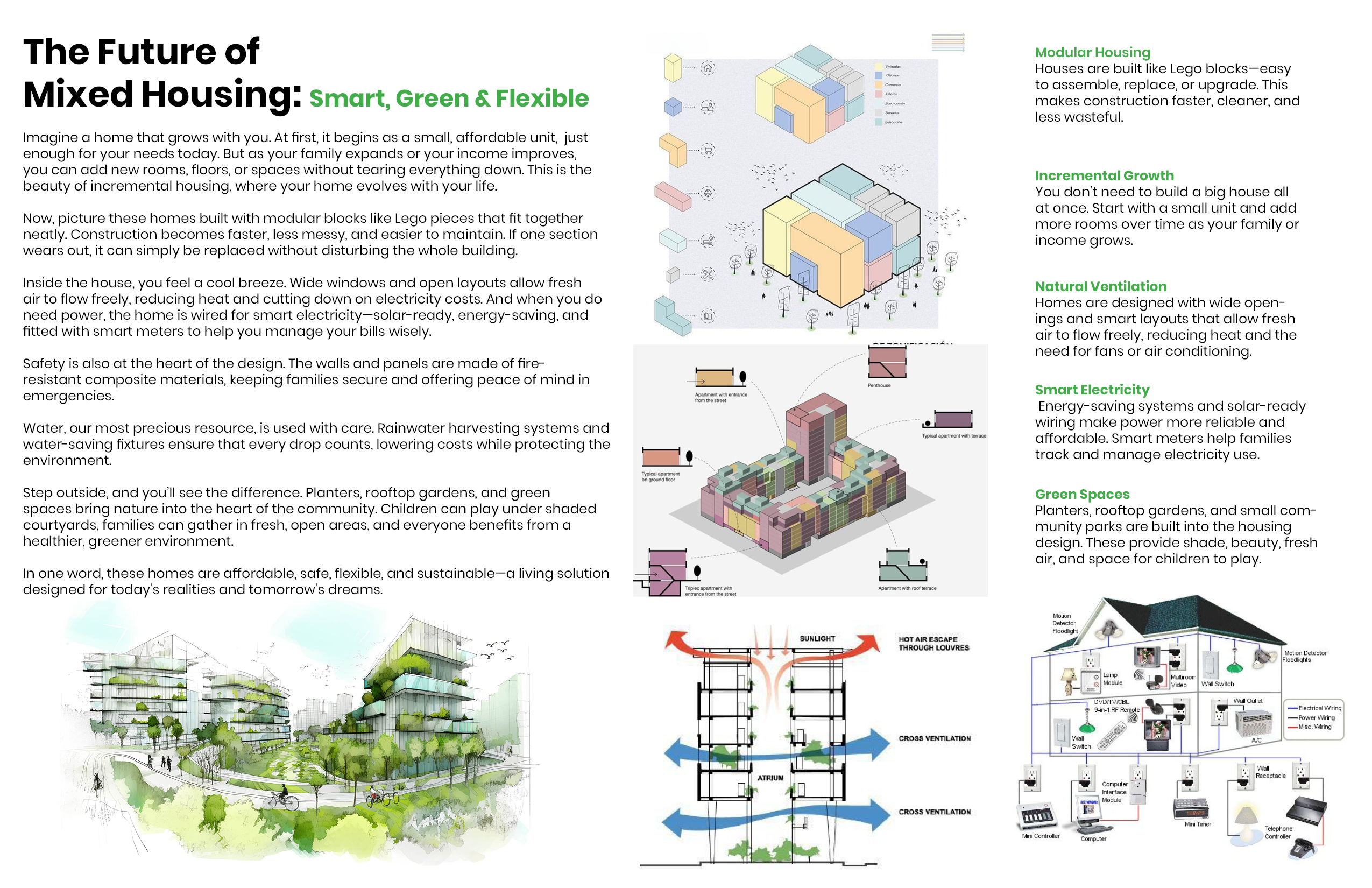
Let’s face it:
But the land co-ownership and incremental models of community-powered housing flip the script, ensuring and delivering:
For Lagos and other fast-growing African cities, this is more than just an idea. It’s a survival strategy.
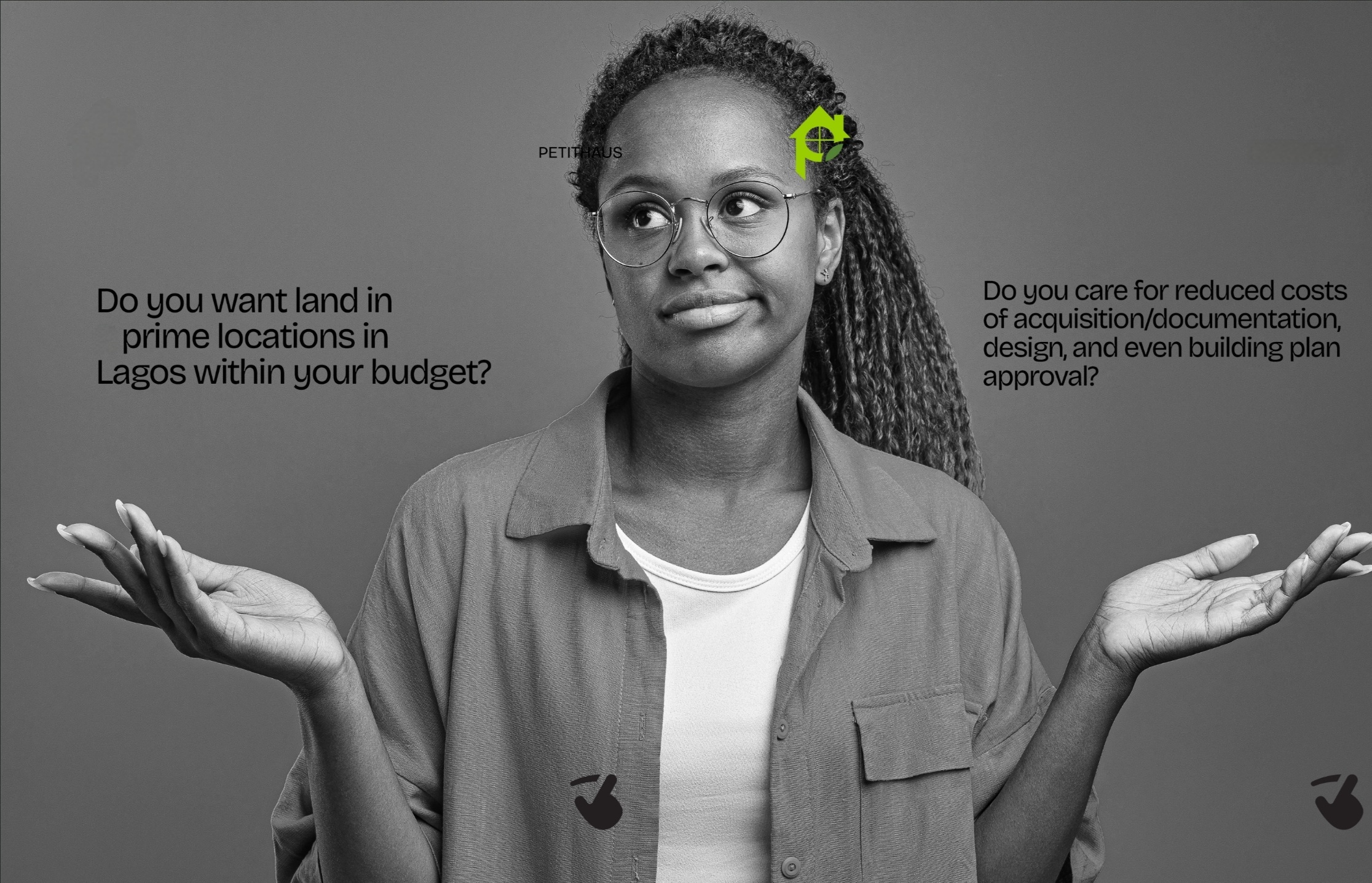
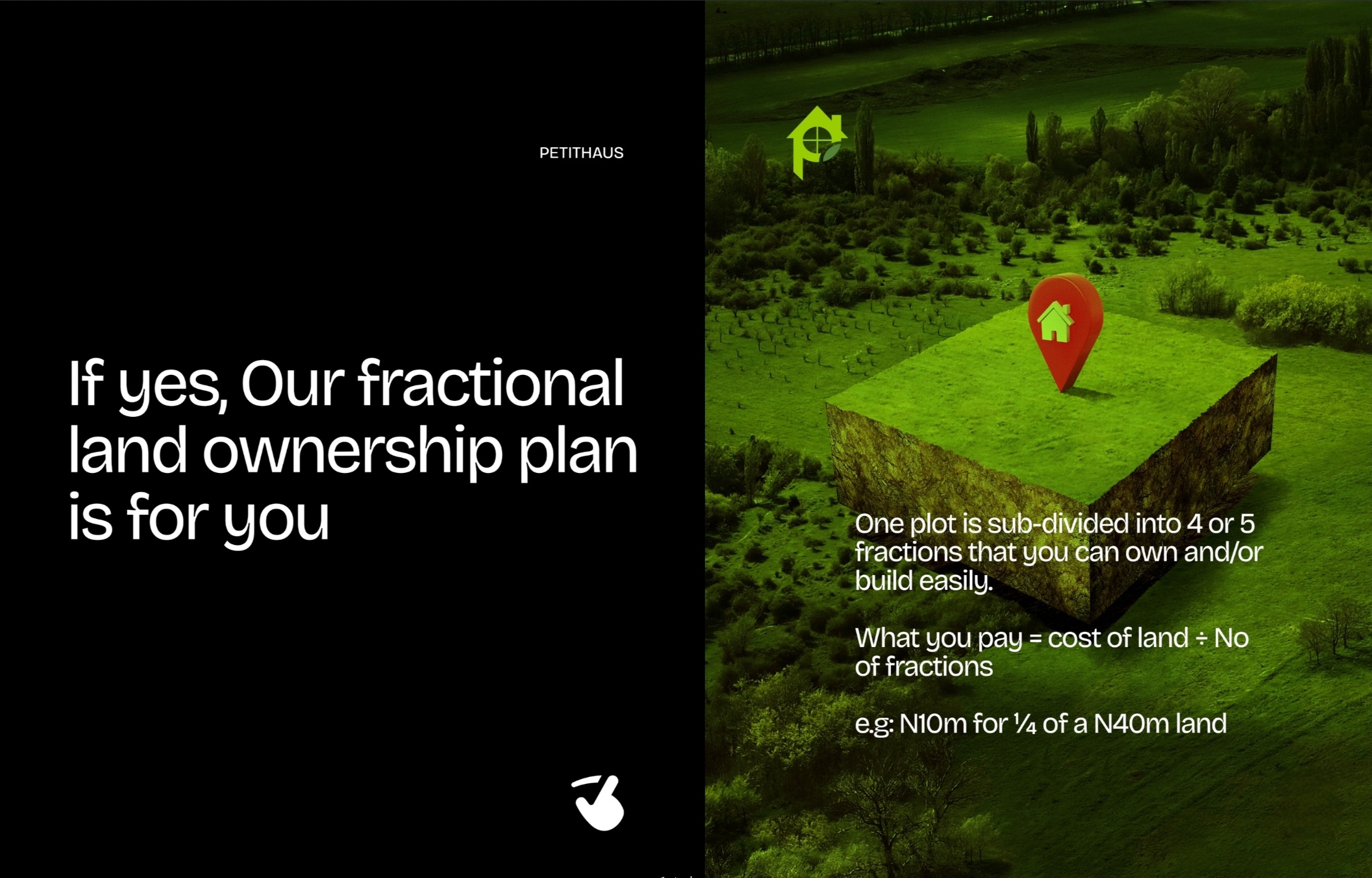
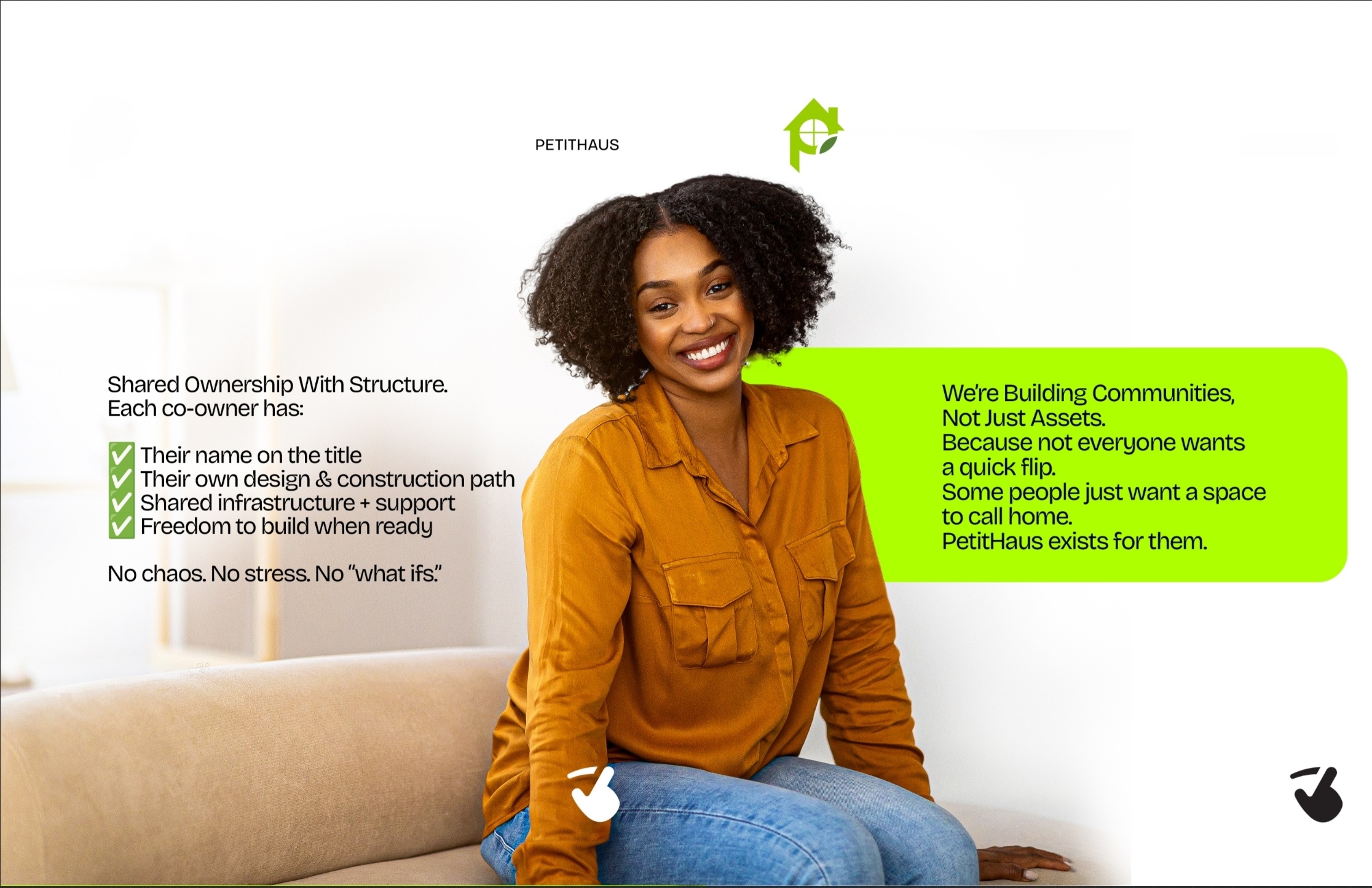
Community-powered housing models of fractional co-ownership (for land) and incrementality (for development)—led by PetitHaus—works, and what it delivers is the promise that:
- Access to prime Land is provided fairly.
- Dignifying, high-quality homes are built over time. and
- Dignity, affordability, and sustainability are woven into our neighborhoods.
Talk is cheap, take a look at wha we mean here.
The truth is: no single person can solve Nigeria’s housing crisis. But together, by sharing ownership, building in phases, and designing for people where they are, we can unlock affordable homeownership at scale.
The real question isn’t if this will work.
It is: when will we decide to build this future together?
01.

02.
Category
Discover insights into creating affordable homeownership with PetitHaus.
